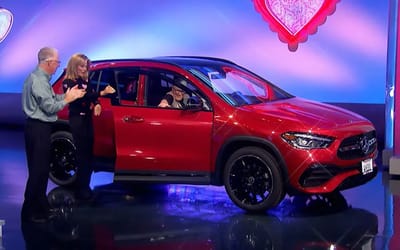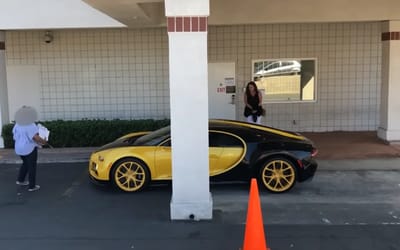Panasonic claims its new battery technology could add nearly 100 miles to a Tesla Model Y's range
Published on Sep 24, 2025 at 7:19 AM (UTC+4)
by Callum Tokody
Last updated on Sep 24, 2025 at 1:23 PM (UTC+4)
Edited by
Emma Matthews
Panasonic battery technology for the Tesla Model Y could add close to 90 miles of extra EV range, according to new details from the company.
The design uses an anode-free approach that creates more room inside the cell for energy storage.
Engineers say this method allows a higher driving range without needing a larger battery pack.
With EV competition intensifying, Panasonic’s work is being closely followed across the industry.
VISIT SBX CARS – View live supercar auctions powered by Supercar Blondie
Bigger range, smaller packs
In the new process, the usual anode is left out during production, and a thin lithium metal layer forms naturally during the first charge.
This leaves extra space for cathode material, which increases the amount of energy each cell can hold.
Panasonic estimates this could raise battery capacity by about 25 percent, which would extend the Tesla Model Y EV range by nearly 90 miles.

That change would come without altering the size of the current battery pack.
This design also, of course, carries cost implications. Automakers could keep EV range the same but shrink the size of their battery packs, cutting both vehicle weight and production costs.
Panasonic battery researchers have also discussed reducing the share of nickel used in cells, which would lower reliance on one of the more expensive raw materials.
The company has not confirmed whether these changes will reduce consumer prices, but the timing is significant as Tesla faces stronger competition from rival EV makers.
Panasonic battery technology and what comes next
Other companies are developing similar solutions.
QuantumScape in the United States has tested an ‘anode-less’ design in a Ducati electric motorcycle, while another US firm, Our Next Energy, has built large-format cells with high energy density.
These projects indicate that battery technology advances are a priority for manufacturers competing to improve EV range.

Panasonic is also investing in recycling to secure its supply chain.
A partnership with Sumitomo Metal Mining focuses on recovering nickel from old EV batteries and turning it back into cathode material for new cells.
This closed-loop approach reduces the need for newly mined resources and ensures valuable materials remain in circulation.

Beyond cars, Panasonic has plans for industrial and robotics markets.
Reports suggest it is preparing to launch sample batches of solid-state batteries in 2027, aimed at next-generation applications.
Together, these projects show the company is working to expand its role in energy storage.
With Tesla and other automakers pushing for higher EV range and lower costs, Panasonic battery technology may prove central to the next stage of electric mobility.
DISCOVER SBX CARS: The global premium car auction platform powered by Supercar Blondie
Callum has vast and varied experience, presenting a radio show and founding his own magazine to name just a couple of his accolades. In addition to his role as PR & Partnerships Coordinator, liaising with the most prestigious car brands in the world, Callum also heads up the website’s daily news. When he's not at his desk he can be found testing out the ASMR and driving UX of the latest supercar and EV launches.




